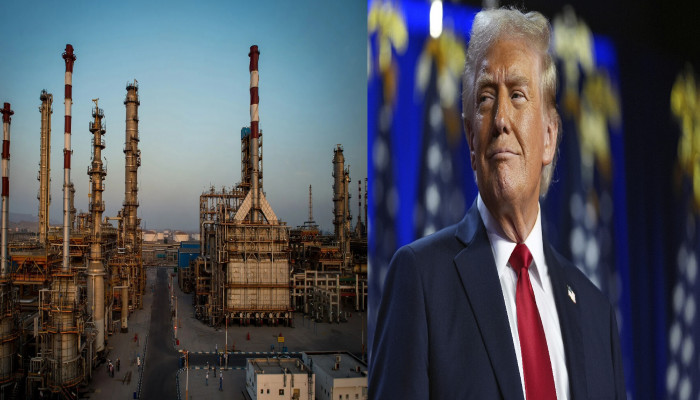China, UAE may cut Iran condensate imports if Trump enforces stricter curbs: FGE
- In Reports
- 05:16 PM, Nov 15, 2024
- Myind Staff
Iran's exports of condensate (a type of light oil) to China and the UAE might decrease if U.S. President-elect Donald Trump imposes stricter sanctions on Tehran, according to analysts at FGE. However, they believe Iran will likely continue supplying condensate to Venezuela.
However, to make up for the reduced Iranian supply, Qatar and Saudi Arabia are expected to produce more condensate starting in 2026. Ultra-light oil called condensate is usually processed at splitters to create naphtha, a petrochemical feedstock, or used as a diluent for heavy crudes like those from Venezuela. According to FGE, Iran presently exports 100,000–150,000 barrels of condensate per day (bpd), primarily to China, Venezuela, and the United Arab Emirates.
Iman Nasseri, a managing director at FGE, told the Condensate & Naphtha Forum that if Trump intensifies sanctions on Iran, the company's condensate exports to China and the United Arab Emirates will probably decrease or cease entirely since there are fewer consumers for the ultra-light oil than for Iranian crude. The Middle East produces about 2.5 million barrels per day (bpd) of condensate, making up around 40% of the global supply. More production is expected from gas fields in Qatar and Saudi Arabia. Qatar's North Field Expansion project, set to begin in early 2026, will increase condensate production by 400,000 bpd by 2030, according to FGE analyst Samuel Ho.
According to him, Saudi Arabia is anticipated to begin Phase 1 of the development of the Jafurah Basin by 2026, with a potential capacity of 100,000 barrels per day for the production of condensate, and Phase 2 some time in 2028, with a potential capacity of over 200,000 barrels per day. Africa, Vietnam and Asia are projected to produce more condensate, according to Ho, as countries increase their natural gas output for the energy transition.







Comments